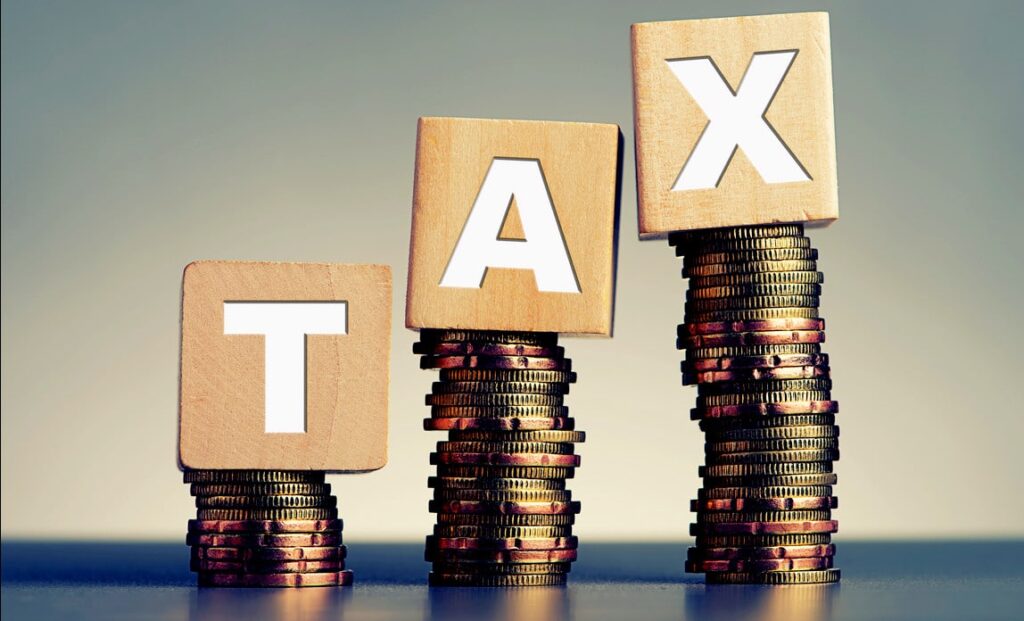You’ve registered at an online casino in New Zealand, played your game and won a decent reward. Is the prize tax-free or do you need to report it? Tax implications are complicated in every country and if you’re playing at NZ online casinos, you should get familiar with them.
That’s what this article is all about. We’ll focus on New Zealand’s legal framework regarding paying tax on your gambling winnings.
Background on Gambling in New Zealand
Gambling is quite popular among Kiwi residents. Some outlets report that the average New Zealand player wagers about NZ$572 per year. Not only that, but statistics show that the annual growth rate of the industry is 5.58 and the user penetration rate is 10.7%.
In terms of legality, land-based casinos are regulated by the Gambling Act 2003. To gamble, you need to be at least 18 years old. Interestingly enough, online casinos are hardly regulated. The law states that only two entities can provide residents with online gambling services – Lotto NZ and TAB.
Other online casinos aren’t allowed to be based in New Zealand. However, Kiwi players face no restrictions for accessing offshore sites. NZ laws don’t apply to them and hence, they are open to offering their services to New Zealanders.
General Tax Principles in New Zealand
New Zealand has a progressive tax system. That means that the taxes that you pay depend on how much you’re earning. Additionally, there are additional taxes, depending if you have more than one income. With that being said, the taxes are the following:
- 10.5% personal income tax for earnings of up to NZ$14,000
- 17.5% personal income tax for earnings between NZ$14,000 and NZ$48,000
- 30% personal income tax for earnings between NZ$48,000 and NZ$70,000
- 33% personal income tax for earnings between NZ$70,000 and NZ$180,000
- 39% personal income tax for earnings over NZ$180,000
The secondary income tax rates are identical as well. The authority that’s responsible for tax enforcement and collection is the Inland Revenue Department (IRD). Tax shortfall penalties include paying 150% of the missing tax or prosecution of up to five years and a fine that goes as high as NZ$50,000.

Taxation of Gambling Winnings
When it comes to taxing gambling winnings, it all depends on whether you’re gambling as a hobby or if that’s your main source of income. Hobby gambling means that you’re participating in gambling activities for fun from time to time.
On the other hand, gambling is considered your main source of income if you do it in an organized and systematic manner. If you’re flagged for that, your gambling winnings will likely be subject to taxation.
The law in New Zealand states that if you’re a professional gambler, all incomes over NZ$449 are subject to a 29% tax. This change was brought in October 2021. Before that, the taxation on gambling winnings was 30.1%.
Criteria for Determining Taxable Gambling
IRD is the governing body responsible for categorizing you as a professional or a recreational gambler. To be considered a professional gambler, the authority considers the following factors:
- Frequency of your gambling activities
- The organization where you’re gambling
- Your knowledge of the gambling systems
- Intention to make a profit
Here’s an example. If the IRD finds out that you frequently gamble at poker tournaments where the buy-ins are higher than usual, then you’re likely to get flagged for gambling taxation. The idea is the following – poker tournaments are events that attract players with professional knowledge of the system.
Not only that, but the buy-ins to these tournaments can be high. As such, you fill out all the criteria to be considered a professional gambler. First, you’re signing up for tournaments regularly. The organization behind the tournaments are always professional and formal.
To participate in these tournaments, you need to have extensive knowledge of the gambling game, which you probably do. Finally, since the buy-ins are high, the rewards are also extensive. As such, the most likely intention for your participation is to make a profit.
Reporting and Paying Tax on Gambling Winnings
The process of reporting and paying tax on gambling winnings is very straightforward. The first thing that you’ll need to do is visit the official website of IRD.
Then, click on the “Forms & guides” button at the centre of the home page. The tax form that you’re looking for is IR3. This is the income tax form for individuals. After you fill out the form, you’ll have to log in to myIR and upload the files. Keep in mind that IR3 forms are filled annually and you need to send them by July 7.
You’ll likely have to visit your local bank to pay the tax. In many cases, you can complete this process via mobile/online banking.

Offshore Gambling and Tax Implications
Offshore gambling isn’t quite regulated in New Zealand. The Gambling Act 2003 states that gambling websites other than TAB and Lotto NZ can’t be based and operate in New Zealand. However, offshore sites are in the grey zone. That’s why Kiwi players don’t have any restrictions when accessing them and playing for real money.
If you’re a professional gambler and you want to tax your income, your profit will count as overseas income. Hence, you’ll need to file an IR1261 form. The form requires you to provide IRD with the following details:
- The type of your income (gambling)
- The amount that you earned
- Overseas jurisdiction where the profit was made
- Amount of foreign tax credit
Social Welfare and Gambling Winnings
One of the reasons why it’s important to report your gambling winnings (if you’re a professional gambler) is that the NZ government distributes these funds to good causes. The country allocates the money for responsible gambling agencies, gambling education, infrastructure, gambling regulation and welfare.
Hence, by paying the taxes on winnings, you’re preventing other players from having negative gambling experiences such as registering at scam sites and developing gambling addiction. If they do develop gambling addiction, RG organizations which are funded with tax money are there to help them overcome the problem.
Last but not least, a portion of the money is directed towards education and infrastructure, which strengthens New Zealand’s economic state.
Responsible Gambling and Financial Management
When gambling at land-based establishments or online casinos, your main priority should always be to play responsibly and for fun. That’s why we would advise you to always use various responsible gambling tools to make sure you don’t cross the line. These tools include:
- Setting time limits
- Loss limits
- Deposit limits
- Win limits
Also, never chase after losses or wins. If you do so, you’ll find yourself in a never-ending loop. Chasing losses or wins is actually one of the most common ways to develop an addiction. If you’re gambling at an online casino and notice that you’re spending more than you should, don’t hesitate to enrol in their self-exclusion programs.
On the other side, if you’re a professional gambler and you’re recording significant wins, make sure you have good financial planning. Our advice is to either invest the money or create a savings account. Asking for financial advice from experts is also on the table.
Common Myths and Misconceptions
Gambling, as with any other activity, faces certain myths. The general public, who isn’t quite familiar with the industry, often believes these myths, but we’re more than happy to list and explain some of those misconceptions. The idea is to give you a clearer picture of casinos and help you understand them better.
- Casino games are rigged – This is untrue. Casino games, especially those at licensed online casinos use Random Number Generators, supplied by independent testing agencies. They are in charge of creating random outcomes for every betting round. As such, every player has an equal chance of winning a reward.
- Bonuses are fraudulent – Bonuses at both land-based and online casinos are as true as you can imagine. They allow you to play the featured games for real money without wagering your funds. However, you need to be careful with them, especially if you’re playing at a casino site. Bonuses here usually have several terms and conditions. You need to meet the terms if you want to withdraw winnings made with the bonus itself.
- Lucky numbers are the key – When it comes to gambling, there’s no such thing as lucky numbers. As we said previously, all gambling outcomes are random. Lucky numbers will never increase your chances of hitting a win.
- Strategies guarantee you wins – table games such as poker and blackjack open the doors towards using strategies. Although they can increase the chances of winning, they can never guarantee you wins.
- The more I play, the higher my chances of winning are – Lastly, the quantity of your playing activity doesn’t mean that you’ll get a reward soon. That’s why it’s important to play responsibly. With casino games, you can end up with a decent reward on your first spin. However, you can also have 50 spins without forming a win. Everything is random.

Conclusion
New Zealand is one of the fastest-growing markets for casino gambling. If you’re a recreational gambler, then there’s no need to pay taxes on your winnings. However, if this is your main source of income, you are obliged to fill out the tax forms and report your rewards. The money that the state earns from taxes is redirected towards good causes, which is a reason more why you should always report it.




